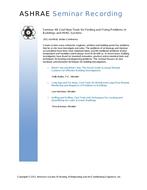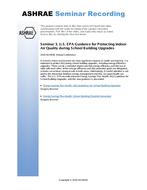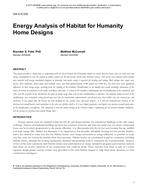The modeling of HVAC systems and their interaction with the building is necessary to evaluate the energy consumption of a building. This modeling is all the more important since these systems are designed for extreme conditions and often work at 60% of their maximum power with a significant number of on-off cycles. Thus, the hourly models may become inaccurate in predicting the energy consumption of the system. This paper deals with the usefulness of “the multiple model approach” in the modeling of air-conditioning systems (in this case, we have focused on the modeling of a split system) and the integration into a building simulation code. Three models are presented, characterized by different complexities of modeling and different time steps. The objective is to compare an hourly time step model to a reduced time step model, enabling consideration of the control and the dynamic behavior of the system.
An experimental validation was undertaken in order to compare the accuracy of each model. The data acquisition system and the test cell, located on the French island of La Réunion in the Indian Ocean, are described. The results show that, for lowpart-load factors, short time step dynamic models predict energy consumption more accurately than hourly time step models.
Units: SI
Citation: ASHRAE Transactions, vol. 107, pt. 1
Product Details
- Published:
- 2001
- Number of Pages:
- 12
- File Size:
- 1 file , 350 KB
- Product Code(s):
- D-22508


